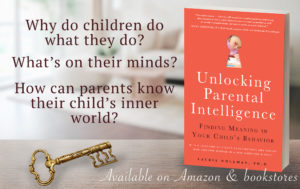Toilet training should always be a positive experience that a child is proud of. If there is increasing tension and frustration, stop trying and let your child show you in his or her own way when he or she is ready to make it his or her own job.
7 Tips for Parents
The average age for toilet training is three. Beware of pressures on you as parents to perform this task because your tension will be transferred to your child.Two-year-olds have object permanence which means when daddy goes to the next room the child expects he is just around the corner. They understand when someone is out of sight they are not gone. As they gain this new ability, it leads them to be focused on and possibly concerned about good-byes and disappearances. As a result, they worry about where the water goes when it goes down the drain in the tub. Where does it go? Does it come back? Thus, they may be afraid of losing their stool.
Notice when the child enjoys what he can do for himself. This suggests he will be interested in a potty of his very own.When the child is aware of the need to urinate or have a bowel movement but hides when doing so, he is not up to sharing this feeling yet with his parents. When it is the parents’ motivation and the child is rushed to the potty when he shows he’s about to have a bowel movement, he may let you proceed, but if he has a stony face and arms hanging loose with feet and legs stiff, he’s saying I’m not up for this yet. Become a good observer of your child’s habits and they will clue you in to when to start the toilet training. Let your child teach you!
Signs a child is NOT ready
Doesn’t want diaper off at all, screams and struggles.Takes off his diaper then has a bowel movement or pees on the floor.Struts around with a broad gait, and then sits down with a mushy stool in diaper but appears not uncomfortable but blissful. Says no,no, if a parent comments that he seems to be ready.Hides in closet or corner where hear grunting.Shows any persistent resistance whatsoever to using the potty or toilet.

Read more about Parental Intelligence!
Laurie Hollman, Ph.D., is a psychoanalyst and author of Unlocking Parental Intelligence: Finding Meaning in Your Child’s Behavior found on Amazon, Barnes & Noble, Familius and wherever books are sold.


